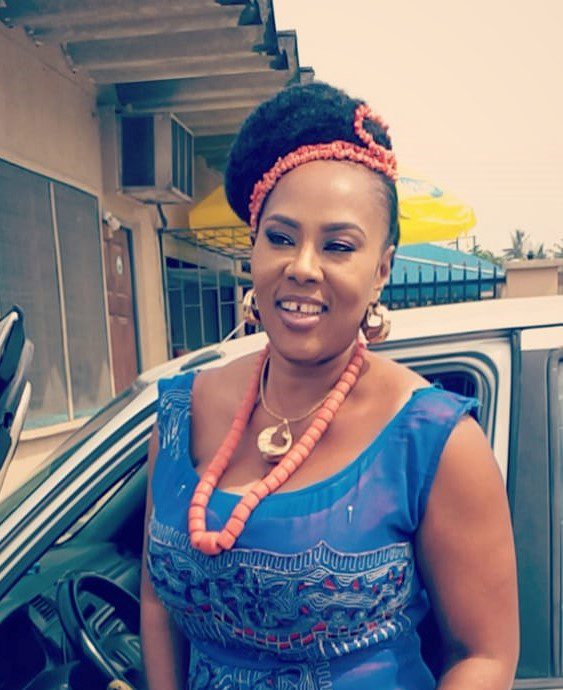Democracy & Governance
The Fight For Gender Equality: Salient Strategies To Learn From Daughters of Zelophehad -By Sandra Ijeoma Okoye
One of the most salient lesson to learn from the five sisters is that they were bold; they stood before Moses and the entire congregation and stated their case without fear and trembling. “Our father is dead and he had no son.” They said and went on to ask the million dollar question which had never before been asked by a woman, “Why should his name be lost because he had no son?”

If there is any fight that should concern everyone, not just women, it is that of gender equality. Despite been called feminism by most people, thus giving it a derogatory coloration, that does not take away its true meaning, which is an all-encompassing idea that promotes equality of the sexes. In fact, no matter how misogynists want to corrupts its meaning and essence and has a greater chance of success if it welcomes more people into its struggle.
As a woman who has worked for a number of years in what was once a largely male-dominated industry, I am a staunch feminist who has always believed in equality of the sexes.
My definition of equality means that both men and women have fair access to any and all job opportunities, receive equal pay in the workplace, and are not treated any differently to their counterparts of the opposite sex. This includes positive discrimination, as the idea that someone should expect to profit from their sex, gender, ethnicity, socioeconomic background, sexual orientation, or religious beliefs which are all antithetical to the purpose of equality.
However, it would seem that feminism has become far too militant in both its outlook and actions, as it has forcibly superseded more traditional forms. Instead of fighting for equality, these radical feminists are fighting for all-female domination, which in itself defeats the ultimate purpose of feminism.
We should wear the label of humanity rather than that of feminism with pride, and nor should we set up men as the villains in the fight for sexual equality.
Feminism is an all-encompassing idea that promotes equality of the sexes, and this means that anyone can be a feminist. It does not matter if you are a man, or a devout Christian, a Muslim, a transsexual, or anything other than woman. Feminism as a Cause is for anyone who believes that both men and women deserve to be on an equal footing in every aspect of life.
It is against the foregoing backdrop that this writer, as a feminist, is advocating that there are salient strategies to learn from the daughters of Zelophehad who fought for their rights, and won. Their advocacy was never turned down by the lawmakers and emperors that collectively held sway during their in the biblical times.
Explanatorily put, Zelophehad was one of the many children of Israel rescued from Egyptian bondage. Despite the fact that the Bible does not throw much light about him, it does mention that he had no sons. Zelophehad had five daughters named, Mahlah, Noah, Hoglah, Milcah and Tirzah. Going by the true meaning of a feminist, which is someone who supports equal rights men and women, then it cannot be mistaken to say they were feminists.
After the death of their father, five of them stood before Moses, Eleazar the priest, the princes and indeed the entire congregation of Israel, the way Nigerian women have been standing for decades, and said, “Our father died in the wilderness, and he was not in the company of them that gathered themselves together against the Lord in the company of Korah; but died in his own sin, and had no sons. Why should the name of our father be done away with from among his family, because he hath no son? Give unto us therefore a possession among the brethren of our father.” (Numbers 27:3-4)
Their request, no doubt, was a bit foreign to Moses as it was the first time women would bring such an issue before him. He was obviously unsure of how to handle it so he turned to the Lord for guidance and this is what God said. “The daughters of Zelophehad speak right: thou shalt surely give them a possession of an inheritance among their father’s brethren; and thou shalt cause the inheritance of their father to pass unto them. And thou shalt speak unto the children of Israel, saying, “If a man die, and have no son, then ye shall cause his inheritance to pass unto his daughter.” (Numbers 27:7-8)
Not only did God instruct Moses to give all five women an inheritance among their father’s brothers, He also made a law that going forward, the inheritance of a man who had no son should be passed to his daughter. Thus, in confronting Moses on this issue, the five daughters of Zelophehad not only liberated themselves, they liberated all women who would ever find themselves in a similar situation. These women were empowered women, these women were leaders.
Without doubt, the leadership lessons that can be learned from the lives of the daughters of Zelophehad are that they are liberators. They do not sit around waiting for others to liberate them from the challenges life throws at them, rather, they confronted the trials that faced them and liberate not only themselves but others with them. Today, it is not false to say that not few women are sitting on the fence mocking their fellow women for being feminists.
The fact that the sisters challenged the status quo as they never accepted it cannot be disputed. These five sisters did not accept the status quo, that only a man could inherit his father’s possession, rather they challenged it. They said, “Our father died in the wilderness. He was not among Korah’s followers, who banded together against the LORD, but he died for his own sin and left no sons”.
Again, the five sisters were not afraid to go where no one has never gone before: Prior to this time, no woman had ever stood up to demand an inheritance amongst men but these women did not let that stop them. They had a vision and they pursued it regardless of whether anyone had done it before or not. Great women are pathfinders, trail blazers and pacesetters. They are leaders.
Of more strategic in their advocacy was that they fought for a cause bigger than them: To them, it was not about an inheritance, it was more than that. It was about ensuring that their father’s name did not die. Their father was dead but they were determined that his name would not die.
Interestingly, no one knew Zelophehad while he lived, but his five daughters sounded his name not only to come before Moses and the entire congregation but as a result of their actions, his name was written in the Bible where it would be read for generations to come. Against the foregoing backdrop, it is expedient my fellow Nigerian women understand why we are kicking against the rejection of the Gender Equity Bills by some of the lawmakers. Simply put, we are not fighting to overthrow men from their various positions.
In fact the sisters spoke for their father when he was not there to speak for himself. When he could not fight for himself, they fought to ensure that he would have a light in his tribe and they achieved much more than that. Learning from the foregoing point of view, the women that have been fighting towards the passing of the Gender Equity Bills into law should not make the fight look as if they want to use it to boost their political relevance or enrich their purse.
No doubt, the sisters are change agents. Undeniably, they brought change not only for themselves but for women that would be born many generations later. No more would a woman be unable to inherit her father’s possession. No more would a man’s name die off because he had no sons. To me, as we continue kicking against the rejected bills we should be selfless, and continue to ensure that posterity will benefit more from it than we should.
One of the most salient lesson to learn from the five sisters is that they were bold; they stood before Moses and the entire congregation and stated their case without fear and trembling. “Our father is dead and he had no son.” They said and went on to ask the million dollar question which had never before been asked by a woman, “Why should his name be lost because he had no son?”
Then finally they boldly declared what they wanted. “Give us a possession among the men.” Notice that these women did not say to Moses, “Will you give us? Is it possible?” No, they placed a demand on Moses, they said, “Give us.” And Moses gave them. To me, Nigerian women should place a demand on our lawmakers rather than seemingly asking them, “Will you pass the five women’s rights related bills in the house before you?
Though these great women won the battle against gender biases thousands of years ago, they today remain an inspiration to other women, like this writer. Every time I read the story of these women, I am deeply inspired. Their story makes a complete nonsense of the rejections Gender Equality bills have for the umpteenth time by each political dispensation suffered in the hands of our lawmakers. Above all, it is expedient to say that their story sends this short but powerful message to all women, “You can too, because you are a woman.”










